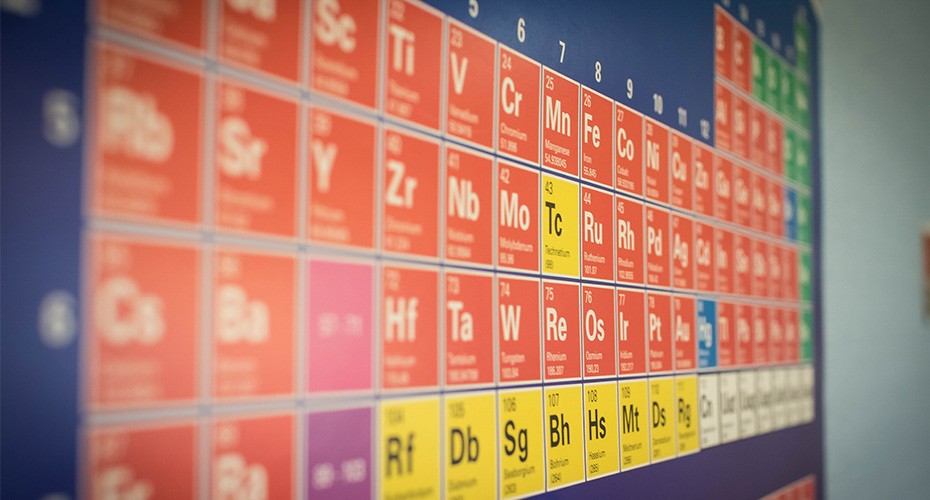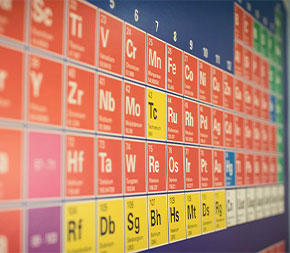Discover the Joy of Science Teacher Careers


A science teacher not only helps answer questions, they inspire their students to seek out the answers for themselves. A science education includes subjects such as chemistry, physics, biology, marine science, astronomy and other courses on the physical sciences.
Through lab experiments, field trips, mixed media materials and computer research, you’ll have the opportunity to encourage students to explore the natural world around them and learn new and evolving scientific theories.
Here are other typical responsibilities of a science teacher:
- Preparing and delivering ability- and age-appropriate curricula
- Demonstrating hands-on activities prior to assignment
- Assigning homework, including supplemental reading and science projects
- Evaluating student performance on tests, reports and lab activities
- Collaborating with other teachers, staff, students and parents to support student progress
- Staying current on the latest technology and scientific discoveries
- Coordinating school science fairs
- Mentoring students and preparing them for science competitions
Where Can I Expect to Teach Science?
As a science teacher with a bachelor’s degree, you can find work in a middle school or high school setting. If you have a master’s degree or PhD, you may be considered for teaching at the college level. Graduates with a science education degree may also find work in science museums, government institutions and private research institutions.
Secondary-school science teachers can expect to divide their teaching time between the classroom, where they lecture on textbook subject matter and lead class discussions, and the science lab, where experiments and hands-on activities take place. Occasionally, you may take your students on field trips to natural history museums or sponsor independent studies.
Breakdown of Salaries
According to the U.S. Bureau of Labor Statistics’ 2023 Occupational Employment Statistics, the median national annual salary for postsecondary biological sciences school teachers is $83,920. High school teachers earned a median wage of $65,220, and middle-school teachers earned $63,680. Salary data is based on national data, not school-specific information. Conditions in your area may vary. Actual salaries may vary greatly based on specialization within the field, location, years of experience, and a variety of other factors.
The BLS also reports that the following full-time science postsecondary teaching positions earned these median annual salaries in comparison to biological science teachers:
| Career | Median Annual Salary |
|---|---|
| Biological Science Teachers, Postsecondary | $83,920 |
| Mathematical Science Teachers, Postsecondary | $81,020 |
| Chemistry Teachers, Postsecondary | $85,810 |
| Physics Teachers, Postsecondary | $98,020 |
| Environmental Science Teachers, Postsecondary | $88,410 |
Although entry-level, primary, and secondary education positions may start at a lower rate, postsecondary biological science teachers make healthy salaries, though specialized college and university teachers in law and engineering do earn more, according to the BLS. Public school teachers also enjoy extensive benefits, including summer and winter breaks, pension plans and comprehensive healthcare packages.
Required Training for Science Teachers
If you’ve ever wondered how to become a science teacher, we’ve got an answer to your question:
- To teach science at the middle or high school level, you’ll need to earn a bachelor’s or master’s science education degree, or get a degree in your field of science and complete a teacher certification program.
- If you already have a science degree, you may qualify for an alternative licensure program that involves supervised classroom teaching and evening classes. Or you may decide to take a year of education courses to earn your teaching certificate.
- Most of the coursework for alternative certification programs leads to a master’s degree, which is becoming more and more desirable for the schools you’ll teach in. According to the National Science Teacher’s Association (NSTA), more than half of surveyed science teachers have a master’s degree.
Getting Certified
Although teacher certification requirements vary from state to state, all public schools require teachers to be certified in order to teach science. Many states also ask public school teachers to take supplemental education courses to maintain a teaching license. If you accept a position at a private school, you may not need a license.



